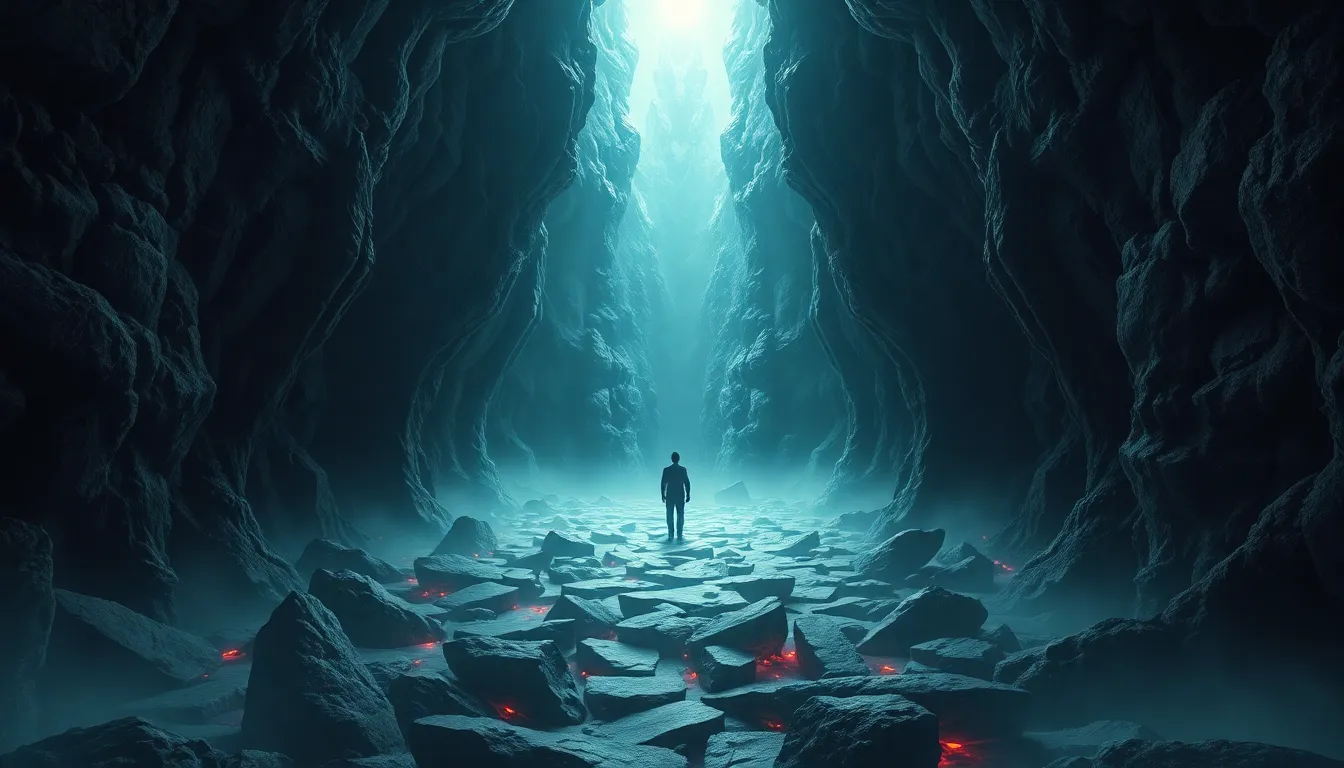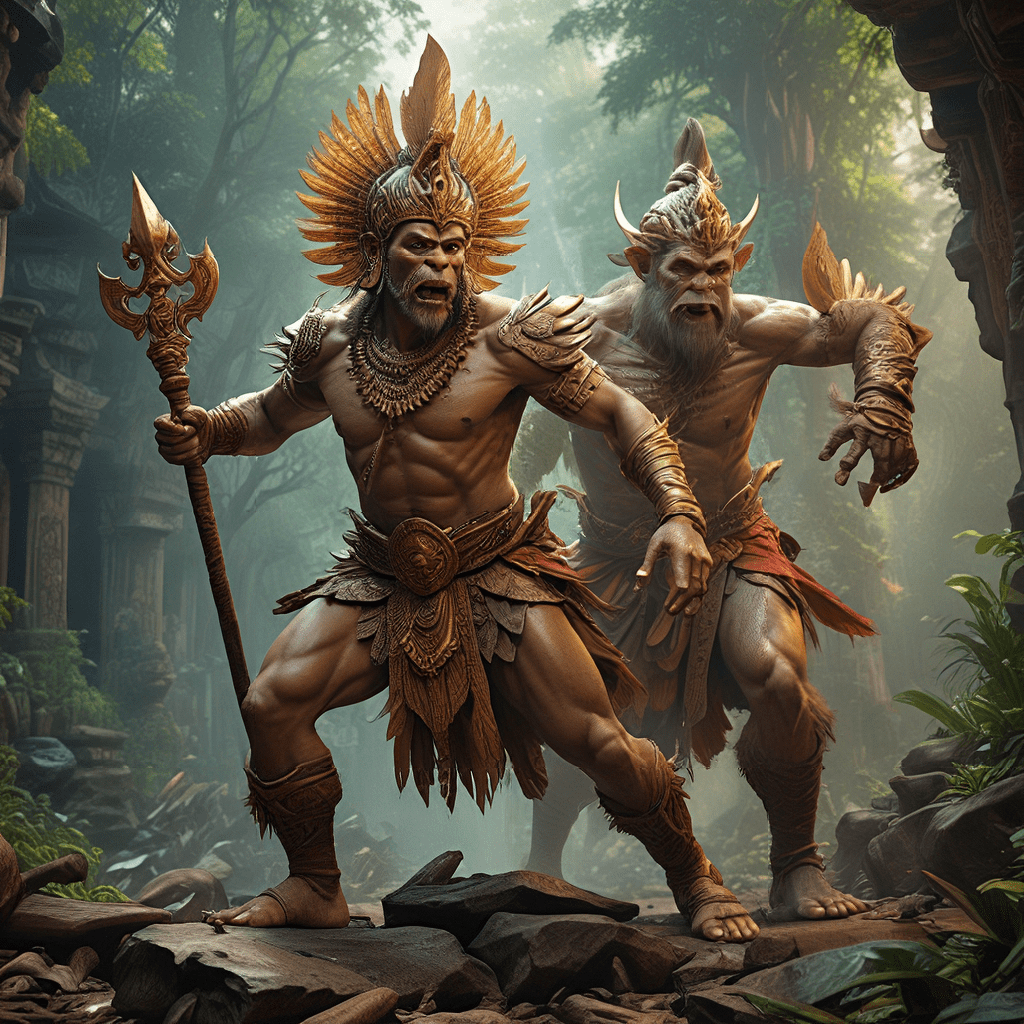The Arena of Legends: Unforgettable Mythological Battles
Introduction to Mythological Battles
Throughout history, mythological battles have served as epic narratives that reflect the values, fears, and aspirations of various cultures. From the ancient Greeks to the indigenous peoples of the Americas, these stories often revolve around the struggle between good and evil, order and chaos, highlighting the human condition’s complexities. They are not merely tales of conflict; they resonate with moral lessons, embodying cultural narratives that have shaped societies for generations.
The Concept of the Arena in Mythology
The arena, in mythological contexts, represents a place of confrontation, where gods, heroes, and monsters engage in battles that determine the fate of the world. These arenas can be physical locations, celestial realms, or metaphorical spaces for conflict. The significance of the arena lies in its ability to showcase the triumphs and tragedies of its participants, offering a stage where the stakes are often cosmic.
Different mythologies provide rich examples of arenas:
- Greek Mythology: The Mount Olympus, where gods interact and battle.
- Norse Mythology: The fields of Vigrid, the site of Ragnarok.
- Hindu Mythology: The battlefield of Kurukshetra, where moral dilemmas unfold.
Legendary Greek Battles: Titans vs. Olympians
One of the most significant mythological battles in Greek mythology is the Titanomachy, the epic clash between the Titans and the Olympian gods. This monumental struggle marked the transition of power from the ancient Titans, led by Cronus, to the younger gods, led by Zeus.
Key figures in this battle included:
- Zeus: The leader of the Olympians who overthrew Cronus.
- Hera: Zeus’s wife and sister, who played a crucial role in the battle.
- Cronus: The ruling Titan who feared his children would overthrow him.
The Titanomachy not only established the Olympian order but also set the stage for many future Greek myths. The victory of the Olympians symbolized the triumph of order over chaos, a recurring theme in Greek mythology.
Norse Mythology: The Battle of Ragnarok
In Norse mythology, the Battle of Ragnarok is a cataclysmic series of events that lead to the end of the world. Prophesied to involve the death of major gods and the destruction of the world as it is known, Ragnarok holds profound significance in understanding Norse beliefs about fate and rebirth.
Key warriors and deities involved in this battle include:
- Odin: The Allfather, who faces his doom against Fenrir.
- Thor: The thunder god, who battles the Midgard Serpent.
- Loki: The trickster god, whose betrayal leads to chaos.
Themes of fate, destruction, and rebirth permeate the narrative, illustrating the cyclical nature of existence in Norse thought.
Hindu Epics: The Kurukshetra War
The Mahabharata, one of the two major Sanskrit epics of ancient India, features the Kurukshetra War, a monumental battle between two factions of a royal family, the Pandavas and the Kauravas. This conflict is not just a physical battle but a profound exploration of duty, righteousness, and moral dilemmas.
Key characters include:
- Arjuna: A warrior prince faced with a moral crisis about fighting his own kin.
- Krishna: Arjuna’s charioteer and divine guide, who imparts spiritual wisdom.
The philosophical and ethical implications of the Kurukshetra War, especially the teachings of the Bhagavad Gita, continue to influence millions today, emphasizing the importance of dharma (duty) over personal desires.
Egyptian Mythology: The Conflict Between Set and Horus
In Egyptian mythology, the conflict between Set and Horus represents the struggle between chaos and order. Set, the god of chaos, murdered his brother Osiris, leading to a legendary battle for the throne of Egypt between his son Horus and him.
The symbolism of this battle encapsulates:
- Chaos (Set): Representing disorder and conflict.
- Order (Horus): Symbolizing justice and rightful rule.
The outcome of the battle solidified Horus’s place as the rightful king and reinforced the Egyptian belief in the restoration of order through divine intervention.
Asian Mythologies: The Fight Between Good and Evil
Mythological battles in Asian traditions often illustrate the eternal struggle between good and evil. In Chinese mythology, the epic tale of “The Journey to the West” showcases the monk Xuanzang’s quest for sacred texts, encountering various demons and spirits along the way.
In Japanese mythology, the story of Yamata no Orochi involves the heroic figure Susanoo battling the eight-headed serpent to save a princess, symbolizing the triumph of good over evil.
These narratives reflect cultural values such as:
- Bravery in the face of adversity.
- The importance of righteousness and virtue.
Such battles serve to reinforce societal morals and ideals within these cultures.
The Role of Heroes and Monsters in Mythological Battles
Central to mythological battles are the archetypes of heroes and monsters, representing the duality of human nature. Heroes often embody virtues such as bravery, self-sacrifice, and honor, while monsters symbolize chaos, evil, and the unknown.
Notable battles that illustrate these dynamics include:
- Beowulf vs. Grendel: The hero’s fight against the monstrous Grendel, symbolizing the battle between civilization and chaos.
- Hercules vs. the Hydra: Hercules’s struggle against the multi-headed serpent, representing the challenges of overcoming one’s inner demons.
The dynamics of these battles often reflect societal fears and aspirations, serving as allegories for personal and communal struggles.
Understanding the Legacy of Mythological Battles
The legacy of mythological battles extends far beyond their ancient origins, influencing modern storytelling across various mediums. These narratives continue to resonate in literature, film, and art, shaping contemporary views on conflict and resolution.
Examples include:
- Films inspired by mythology, such as “Clash of the Titans” and “Thor.”
- Literature that draws on mythological themes, like Neil Gaiman’s “American Gods.”
These stories remind us of the enduring human fascination with conflict, heroism, and the moral complexities that arise from such encounters, offering insights into our own lives and struggles.
Conclusion:
The arena of mythological battles remains an integral part of human storytelling, illustrating timeless themes that resonate throughout cultures. From the epic confrontations of gods and titans to the moral dilemmas faced by heroes, these narratives shape our understanding of good and evil, chaos and order. As we reflect on these legendary battles, we uncover the profound truths about human nature, conflict, and the quest for meaning in our lives.



